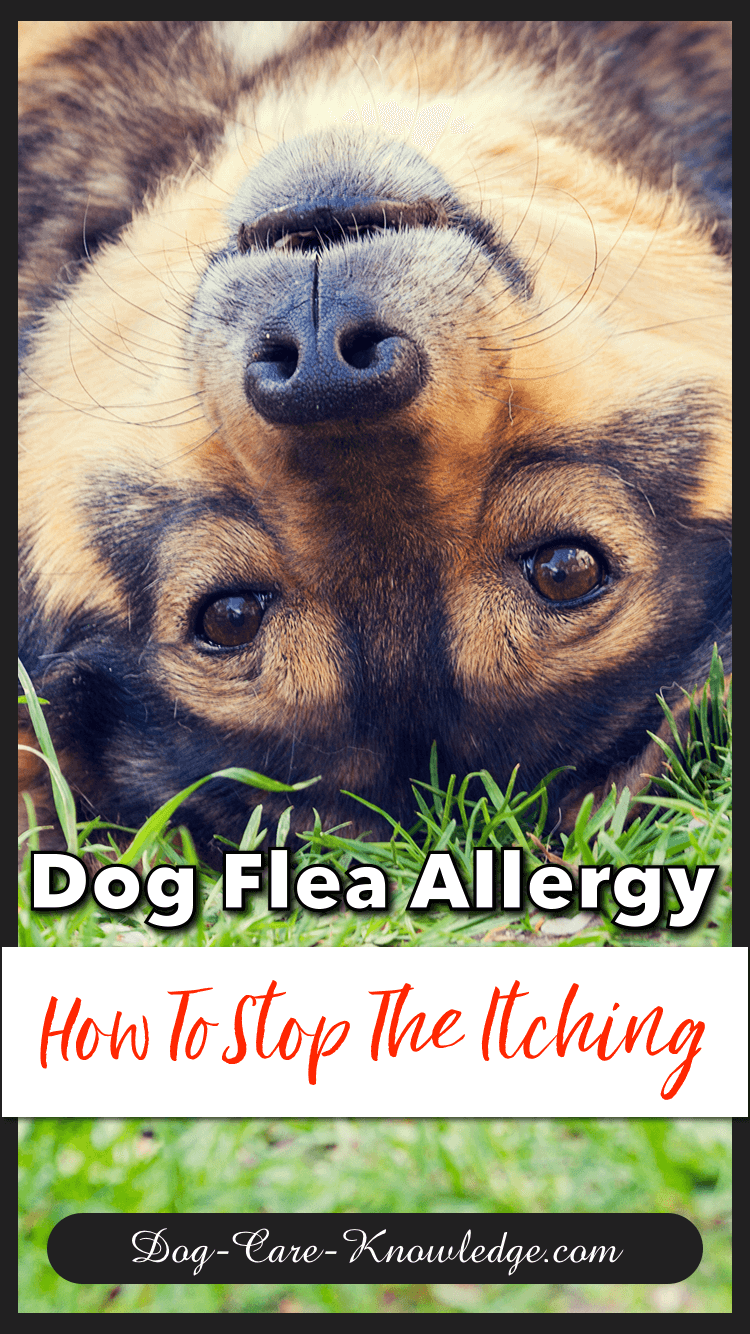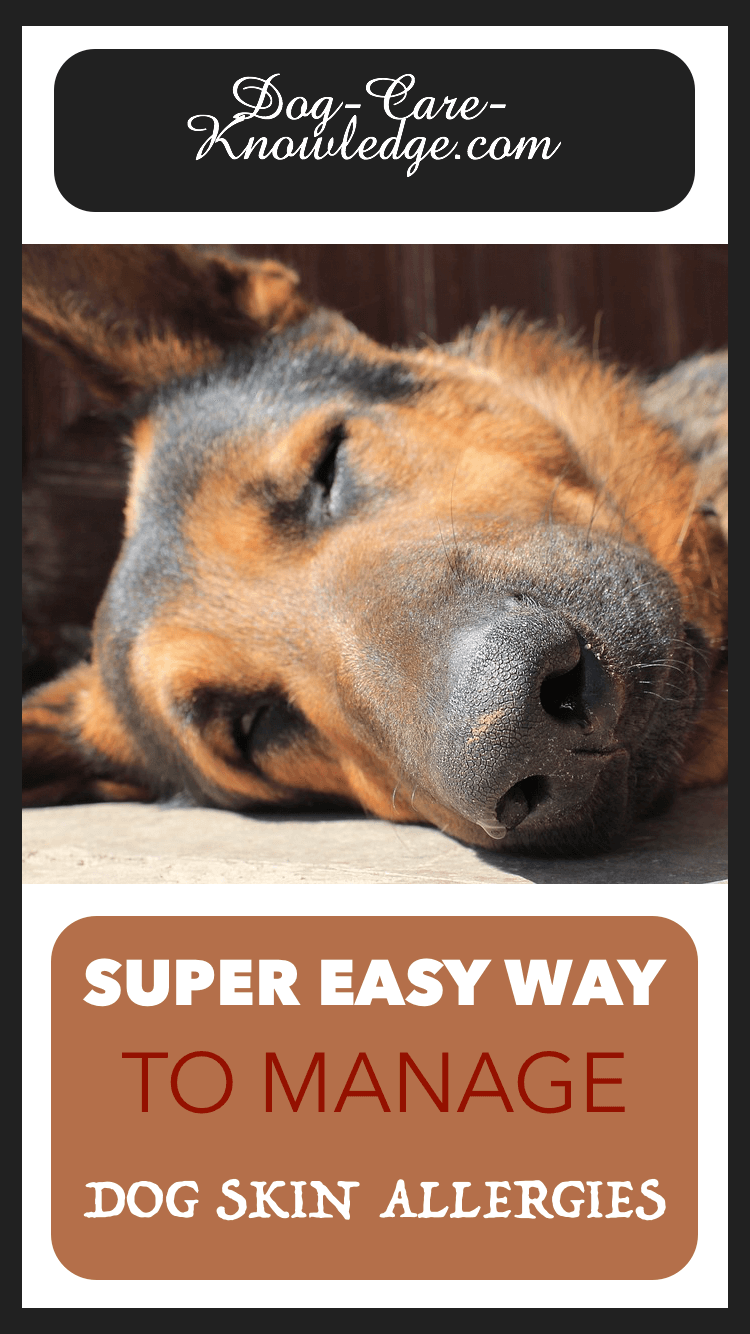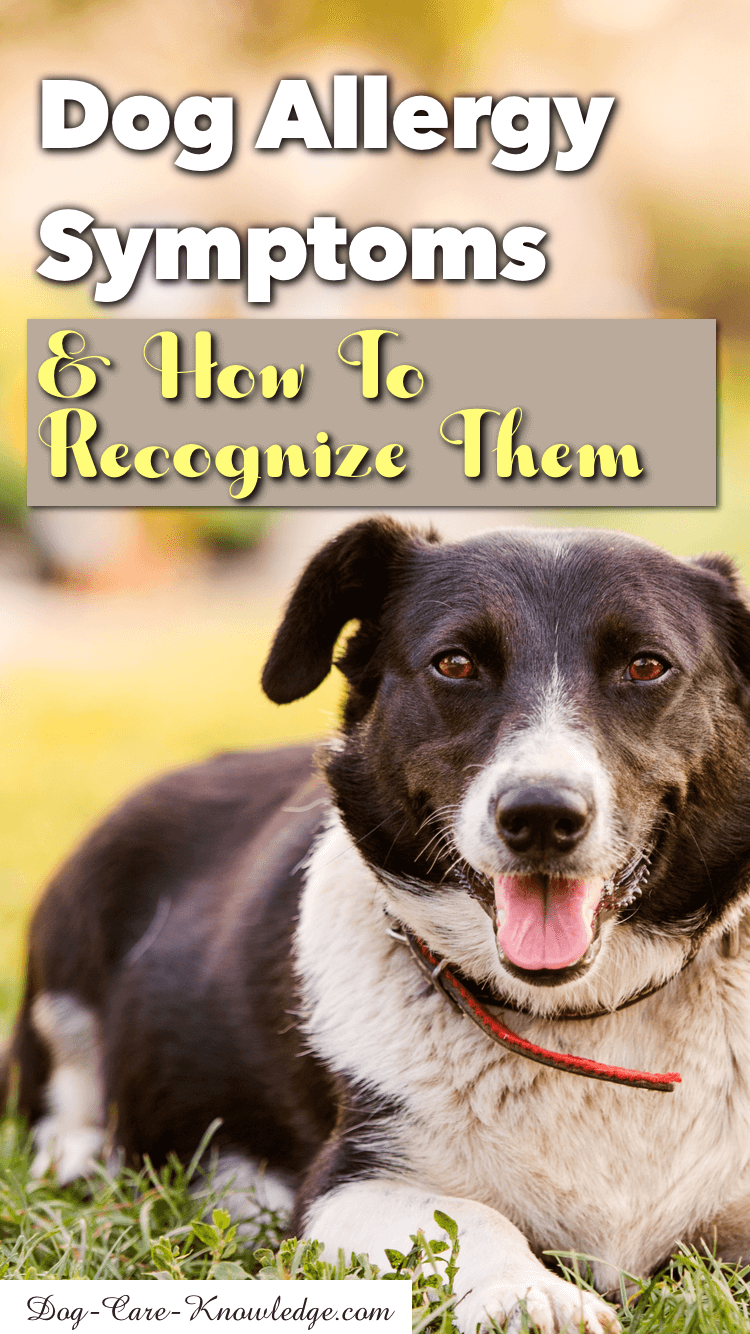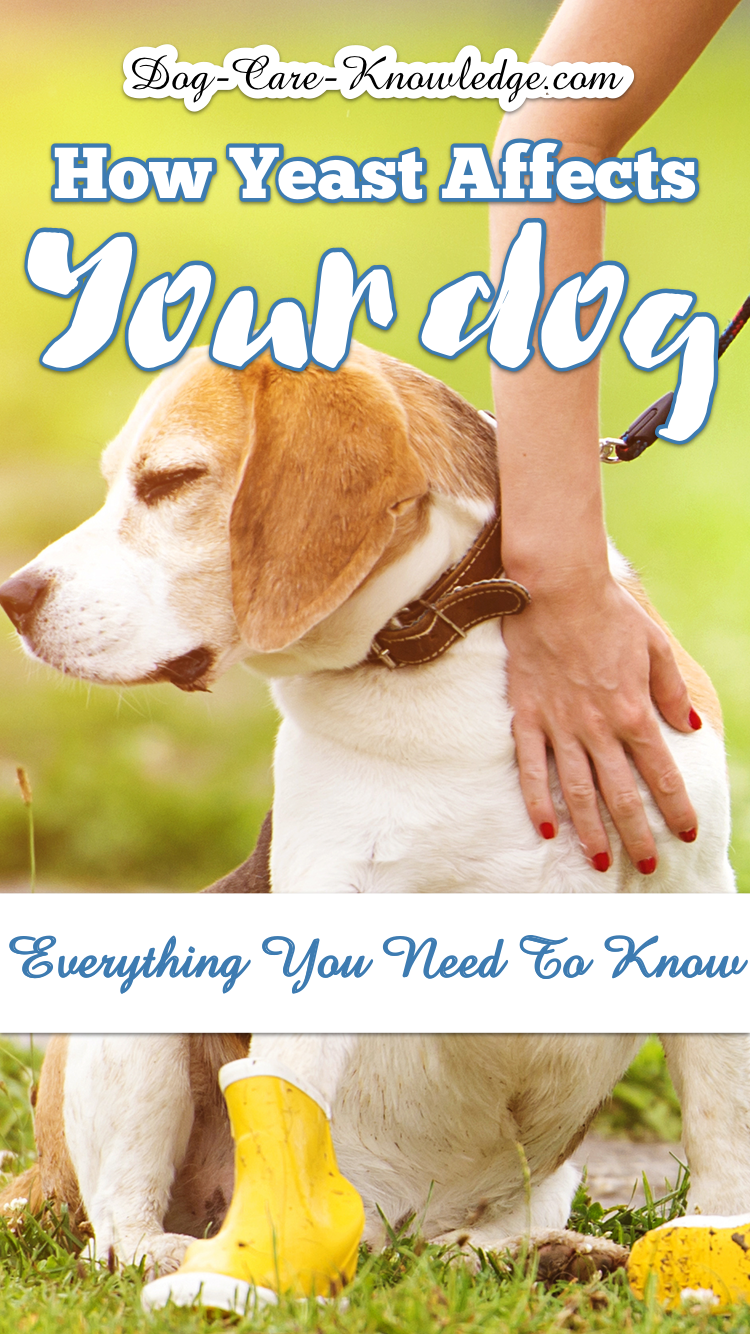- Home
- Dog Allergies
- Dog Flea Allergy
Dog Flea Allergy
A dog flea allergy is the most common type of all canine allergies. A flea allergy doesn't mean that your dog is infested with fleas, in fact, if he is allergic to fleas he will react with just one flea-bite. Itching will begin immediately and will last long after the flea(s) have gone.
The most common indicator that it's a flea problem is that he will be biting and scratching at his rump area near the base of his tail. It is also more likely in the warmer months, spring, especially.
When you have a dog with a flea allergy, you really need to make sure you are preventing them from getting bitten by fleas by using a good flea repellent. It's much easier to prevent fleas than it is to rid your dog of them!
See here for a full list of symptoms of dog flea allergies.
Diagnosis of Dog Flea Allergies:

To check if your pooch has fleas, stand him on sheet of white paper and brush his coat. If flea eggs and waste are present you should see white or black grains of sandy material drop onto the sheet. A vet can confirm the diagnosis quite easily by conducting an intradermal skin test but this is usually unnecessary.
If you see evidence of fleas or a flea allergy, you can treat it without a vet visit. The best treatment is a medicated bath, Benadryl for the itching and definitely get your dog on some kind of flea prevention program.
Medicated Shampoo For Fleas
My very favorite shampoo for treating a dog flea allergy is Nature's Specialties Super Remedy Shampoo.
It contains a mild blend of Melaleuca, Cedarwood and Citronella oils.
This blend cleanses the skin, calms the itching, and also provides a natural repellent against fleas, ticks, flies, and mosquitoes.
Best of all it's a natural product so is Pyrethrin and alcohol free!
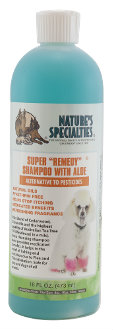
Natural Repellent for Fleas
If your pooch has a dog flea allergy then you must definitely ensure you have some kind of repellent to protect them from even one flea bite.
Although there are many very effective treatments your veterinarian can prescribe, they are all pretty harsh and some dogs have reactions to them also.
Luckily, there are plenty of natural products you can try. Some have extremely good results too.
My favorite natural flea repellent is Vetri Repel Spray.
It's totally natural so contains no pesticides or chemicals and is safe even if your dog licks his skin after application.
It's not a monthly application but is applied daily before your dog goes out.
Spray your dog liberally throughout his skin for maximum protection against fleas, ticks, mosquitos, flies and other pests.
Spray directly onto a cloth, cotton wool or kitchen towel and wipe down sensitive areas such as inside ears, around nose and mouth, or armpits.
Essential Oils For Flea Repellent
Essential Oils are a great natural repellent against fleas and ticks but must be diluted before applying to your dog. Having said that, you can apply a couple of drops of Rose Geranium directly to your dog (or you) but only 1 or 2 drops to the shoulder blades and one to the base of the tail. For you, 1 or 2 drops inside your wrists.
Here are some other essential oils that repel fleas and ticks:
- Cedar Oil
- Citronella Oil
- Lemongrass Oil
- Peppermint Oil
- Rose Geranium (excellent repellent for ticks)
- Neem Oil
- Eucalyptus Oil
Remember to dilute these first. Or, you can make your own spray as below:
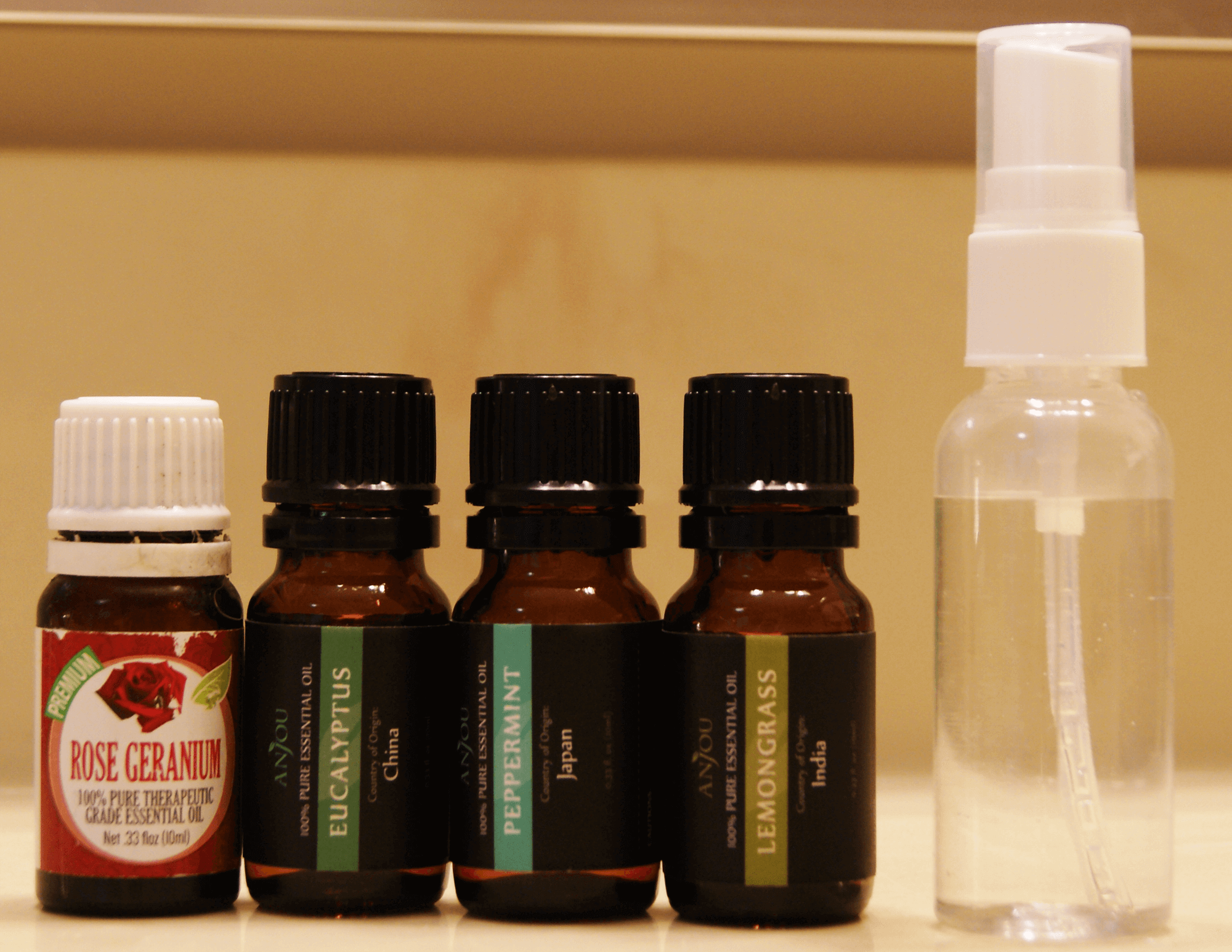
Essential Oil Spray For Fleas and Ticks
In a clean spray bottle, combine 30 drops of your favorite essential oils from the above list, add one cup of water and shake well. Reduce the number of essential oils for smaller dogs.
Prescription Flea Repellents
If you'd rather monthly flea treatment and your dog tolerates them, I recommend either of the following:
Advantage
Advantix
Vectra 3D
Frontline Plus
A word of warning, stay away from those flea collars they aren't as good as topical treatments and can cause more skin irritation and even health problems.
If you do see evidence of fleas, you'll need to treat the whole environment to prevent the fleas from multiplying. See flea and tick control for more information on control and prevention.
To protect your dog's environment against fleas (and ticks) you can spray the Vetri Repel (below) on bedding, collars, leashes, etc and use Vet's Best to treat the yard and any outdoor areas.
Vetri Repel
Vet's Best Yard Sprary
See here for full details of a dog flea allergy treatment plan.
Although a dog flea allergy cannot be cured, it can be easily managed and controlled. As long as you know it's a flea allergy you're half way there, but, allergies are not the only cause of dogs itching and scratching.
If you want to eliminate other skin issues that may be causing your dog to itch and scratch, we have a ton of information for you here.
Reference material for flea allergy dermatisis.
